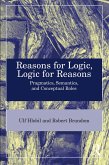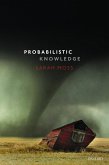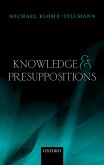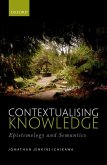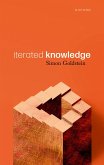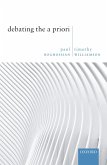Robert C. Stalnaker presents a set of essays on the structure of inquiry. In the first part he focuses on the concepts of knowledge, belief, and partial belief, and on the rules and procedures we use - or ought to use - to determine what to believe, and what to claim that we know. In the second part he examines conditional statements and conditional beliefs, their role in epistemology, and their relations to causal and explanatory concepts, such as dispositions, objective chance, relations of dependence, and independence. A central concern of the book is the interaction of different cognitive perspectives - the ways in which the attitudes of rational agents are or should be influenced by critical reflection on their present cognitive situation, on their own cognitive situations at other times, and on the cognitive situations of others with whom they interact. The general picture that is developed is naturalistic, following Hume in rejecting a substantive role for pure reason in the defense of inductive rules, and in giving causal concepts a central role in the description and explanation of our cognitive practices. However, Stalnaker rejects the side of Hume that aims to reduce concepts involving natural necessity to more basic descriptive concepts. Instead, he argues that the development of inductive rules and practices takes place in interaction with the development of concepts for giving a theoretical description of the world.
Dieser Download kann aus rechtlichen Gründen nur mit Rechnungsadresse in A, B, BG, CY, CZ, D, DK, EW, E, FIN, F, GR, HR, H, IRL, I, LT, L, LR, M, NL, PL, P, R, S, SLO, SK ausgeliefert werden.



